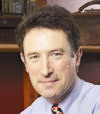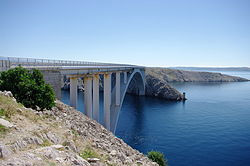Dear Colleagues,
By: Dr John Wynn-Jones, President of EURIPA

It is with great pleasure that I welcome you on behalf of the EURIPA Board and conference organisers to Croatia for EURIPA’s Annual European Rural Health Forum.
This will be the 3rd meeting in our ongoing programme, which aims to raise the profile of rural health and rural practice in Europe. We intend to develop a European Strategy for Rural Health by addressing our 4 guiding principles (quality, research, education and policy engagement). This year we will concentrate of the important topic of training and education for rural practice.
We live in difficult and testing times. Many countries are going through unprecedented periods of austerity with significant cuts in public services and spending. Rural areas may well bear the brunt of these political decisions, leaving them devoid of basic services and an aging population with lower average wages, greater unemployment and higher deprivation. In addition to this, our colleagues tell us of increasing difficulties in attracting young doctors to work in rural communities. Radical approaches will be needed to solve these growing problems. We must develop a workforce that is fit for purpose. This new workforce will need to be multi-professional, academic, highly trained with an intimate knowledge of technology and an ability to train and educate those following in their wake. Hippocrates states that there is the “teacher” and the “pupil” in each of us emphasising the importance that change ensures that we must all engage in a programme of Life long learning.

Europe lags behind some of the exciting developments in education and training for rural practice taking place in other parts of the world. By working together and sharing ideas and good practice we can make a difference. We need to develop innovative undergraduate courses and training programmes with the aim of attracting young doctors and health care professionals into some of the most beautiful and exciting places in our diverse continent.
The Forum will be asking questions and seeking answers to some of the most important and pertinent educational issues facing rural practice. If you are a rural practitioner, a rural academic, a specialist in rural public health or someone who just wants to make a change in rural healthcare, then this Forum meeting is for you!
Come and join us on the beautiful Island of Pag on the stunning Croatian Adriatic coast. This is not one of those expensive blockbuster conferences but it is an opportunity to engage in a process that can make a difference. We have limited the number of delegates and kept the costs at an affordable scale to ensure that we can attract delegates from across the whole of Europe.
So come and join us, have your say and make a difference.
Dear Colleagues and Friends,
By: Dr Tanja Pekez-Pavliško, KoHOM representative in EURIPA / Joint Chair, EURIPA

Work in rural and isolated areas is not a challenge only for the science of medicine, but also for all other professions. This challenge is even more difficult because alongside the huge requirement of medical knowledge, they also need to have a myriad of other skills and knowledge which their urban counterparts do not need. Most of our urban colleagues work regular practice hours with little or no on-call duty, hospitals are very close, their colleagues are next door, social services are a stone’s throw away, educational centers are either in the same town or are easily accessible due to simple and efficient traffic connections.
Concerning private life, large urban areas are filled with content that thrill young doctors and are usually the reason why they eventually decide to stay, although these doctors come from rural areas themselves.
Number of people who enjoy peace and quite, nature and fresh air and food grows thinner all the time...
How to convince young people that working in a rural environment is exciting, perhaps even more exciting than in the capital city?

How to enable undergraduate and postgraduate education of general practitioners who wish to dedicate themselves to rural medicine?
How to assure continuous education of rural doctors? Do we need an EU curriculum?
Perhaps island of Pag with one of the oldest olive tree yards in the world (Area around Lun is one of the three locations in the world known for the highest number of wild olive trees (Olea Oleaster), and oldest trees are more then 1500 years old) can help us reach conclusions that will help us in the education in the area of rural medicine.
Therefore we are expecting you on the Adriatic coast in the hopes that the Sun and the sea will enrich our company.







